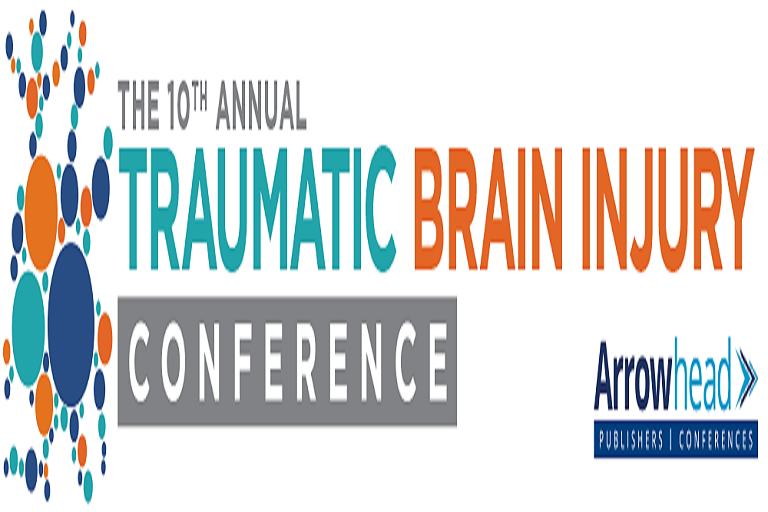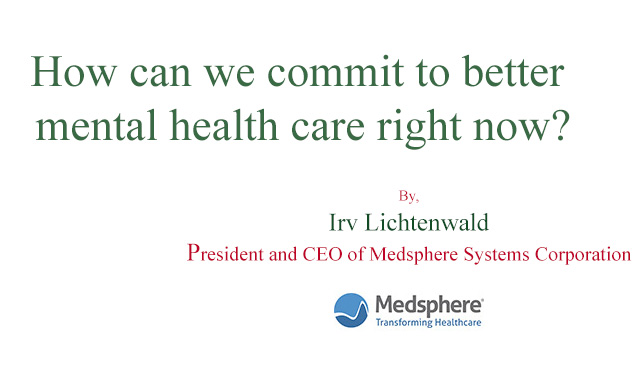Restoring lost beds, expanding health IT incentives and rapidly embracing ACOs are steps forward in addressing America’s mental health crisis
Chances are good someone close to you is suffering from a mental health disorder right now.
You may not know it. While paranoid schizophrenia is pretty obvious, major depression can be hidden during periodic interaction.
The Centers for Disease Control estimates that 25 percent of Americans have a mental illness, and almost 50 percent will face at least one mental health challenge at some point in their lives. The U.S. Department of Health and Human Services says 8 percent of Americans could benefit from drug or alcohol treatment.
These are eye-opening figures that most outside the mental health community probably don’t know about. Here are some more.
- Annually, about 38,000 Americans take their own lives, and 90 percent of those suicides are related to a mental health issue, according to National Institute of Mental Health (NIMH) Director Thomas Insel.
- According to Health Affairs, two-thirds of primary care physicians are unable to find a mental health professional to care for their patients after diagnosis.
- Robert Glover, executive director of the National Association of State Mental Health Program Directors, says that from 2009 to 2012 the states cut roughly $5 billion in mental health services and eliminated about 4,500 public psychiatric beds.
- Estimates by the Department of Housing and Urban Development show a total homeless population nationwide of 650,000. Homeless advocacy organizations suggest the total may be as high as 3.5 million.
- A 2012 survey by the Substance Abuse and Mental Health Services Administration (SAMHSA) showed that almost 40 percent of adults with severe mental illnesses (schizophrenia, bipolar disorder) received no treatment in the previous year; among those with any kind of mental illness, 60 percent went untreated.
- The largest mental health facility in America is Chicago’s Cook County Jail, where, according to a recent Atlantic article, officials estimate as many as 33 percent of inmates have some kind of mental illness.
- Estimates suggest as many as 590,000 people annually end up in America’s de facto mental health system: jails and prisons, streets and homeless shelters, the morgue.
- According to Insel and NIMH research, mental illness costs America about $444 billion a year, with a third of that going to medical care and the majority to disability payments and lost productivity.
We all tend to walk around the homeless in big cities because we don’t know what to do, but these anecdotal experiences also tell a tale. The chronically homeless, those who don’t show up at shelters and soup kitchens to be counted, have completely fallen through the societal cracks. They are apparitions on corners and in doorways, like Dickensian ghosts sending a message we don’t much care for.
I could add more bullet points to this list above, but you get the idea. And, no, I am not suggesting the solution to each of these problems is the same. I am suggesting that the solution is to treat mental health as one component in overall health and start to develop a legitimate mental health system. It can happen on the state level, but those states need to share data or we end up with silos and ineffectiveness.
And the federal government must get involved or there simply is not enough money to make this happen. The feds are certainly aware of America’s converging mental health challenges, but in many ways they seem more interested in measuring than addressing them. Greater scrutiny of records and treatment plans is becoming the norm with regard to Medicare and Medicaid, putting strain on fractured and mostly paper-based inpatient mental health facilities.
So, what can we do right now to start to grapple with America’s looming mental health crisis?
- Restore the psychiatric beds lost during the economic downturn: Most states cut budgets during the recent recession, which hit mental health facilities particularly hard. Tax revenues are starting to tick up, but the federal government will probably have to get involved through block grants or other incentives to bring the beds back online. This effort must be coordinated with local law enforcement so we lessen the number of disturbed people in jails and instead send them to a place where they can get treatment.
- Push the Accountable Care Organization model: Currently, ACOs are happening through the Affordable Care Act. In the event the ACA goes away, the idea behind ACOs should be pursued by other means. Because ACOs are responsible for the entire patient, not just that deep cut or broken finger, there is a pathway for treatment of mental health and addiction challenges. This is the future model for American healthcare, and we’re not getting there fast enough.
- Expand health IT incentives to mental health care: Reporting requirements for mental health facilities are getting more stringent, and yet most are still managing with paper records. Without Medicare and Medicaid reimbursement, many mental health and addiction facilities will go under, leaving even fewer beds available. If we believe that computers are a benefit with physical and surgical care, then they are also a benefit with mental health care.
- Make parity work: Yes, federal legislation requires that insurance companies cover mental health on par with physical health IF the policy includes it. But parity legislation has not achieved its goals because there is no agreed upon definitions of adequate mental health care between insurance companies and caregivers. There is also the question of whether or not insurance should include mental health care. If almost half the country will need the care in a lifetime, why are we excluding it?
- Build public transitional housing: Cities are finding that building apartments and staffing them with nurses is cheaper than rolling out emergency services every time a homeless person requires care. The chronically homeless—those with debilitating illnesses like bipolar disorder and schizophrenia—can be treated and monitored in an apartment complex.
- Outreach, outreach, outreach: The military and VA are working to locate, educate and treat veterans, but it’s not nearly enough. Only 72 percent of Iraq and Afghanistan veterans were employed in 2013, according to government statistics, exacerbating the tendency to drink. Public service campaigns encouraging corporations to give to mental health organizations would also be helpful. Billions go into cancer research every year, and a fraction of that is donated to mental health, despite the crippling impact on productivity mental illness has.
What none of these efforts alone can do is remove the stigma of mental illness—the myth that instability is manifest weakness. Government and corporations cannot engineer a more compassionate, understanding society. That part starts with each of us as individuals making choices.
However, if we, as a society, can succeed in treating the mentally ill, the stigma can disappear all by itself because we will have overcome the mental health challenge. Our fellow citizens are depending on us.
Irv Lichtenwald is president and CEO of Medsphere Systems Corporation, the solution provider for the OpenVista electronic health record.
Source Medsphere








































